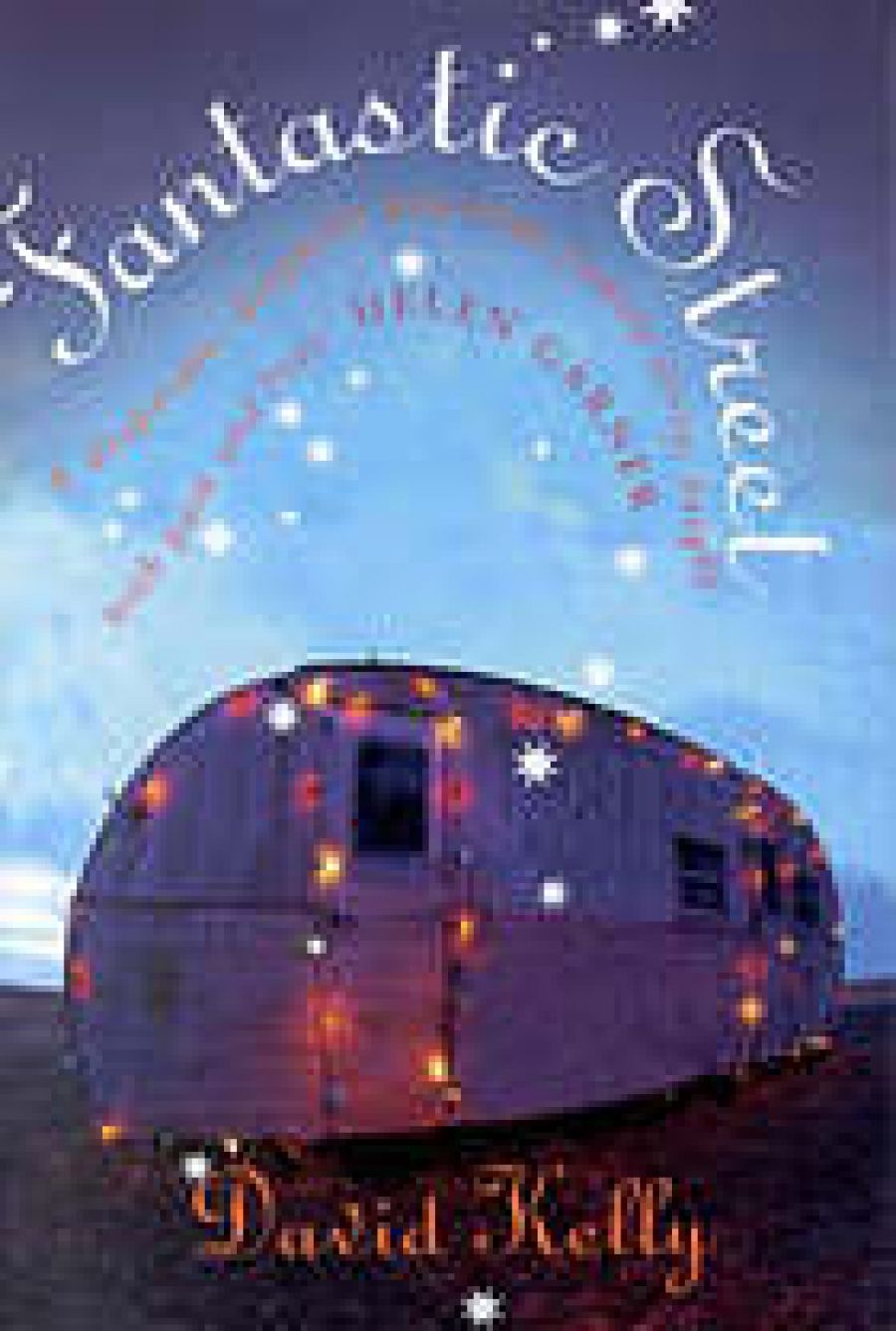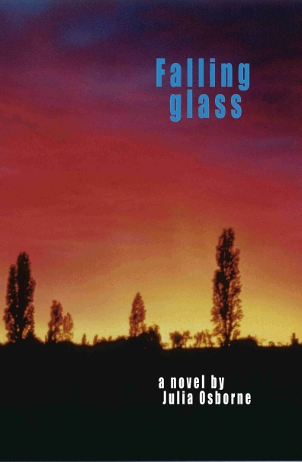
- Free Article: No
- Contents Category: Fiction
- Review Article: Yes
- Article Title: Urban capers
- Online Only: No
- Custom Highlight Text:
These two first novels confront the ongoing complaints of literary commentators that new novels are too often set in the past rather than dealing with present realities. Moving from the criticism of ‘literary grave-robbing’ by American author Jonathan Dee, Malcolm Knox has complained that most major Australian novelists tend to mine fantastic or historical subject matter rather than examining the culture of our daily lives. Knox takes Jonathan Franzen’s The Corrections, a popular and critical success, as his model for a perceptive fictional treatment of popular culture. More recently, David Marr urged novelists to use contemporary settings to address what he calls the ‘new philistinism of John Howard’s Australia’.
- Book 1 Title: Fantastic Street
- Book 1 Biblio: Picador, $30 pb, 213 pp
- Book 2 Title: Falling Glass
- Book 2 Biblio: Julia Osborne, $25.95 pb, 285 pp
- Book 2 Cover Small (400 x 600):
Kelly manages to infuse humour into this bleak scenario. He is especially funny when rendering the naïve emotions of childhood. Alex, for example, greets the arrival of the first foster child with distinct ambivalence, is jealous of the attention the latter receives and, sensibly, says nothing when the child runs away. Instead, he indulges in happy fantasies of himself as the proud and adored only son, pausing only to swap his own urine-soaked bedclothes for those of his departed brother. Alex narrates the novel, and the dominant sardonic humour is often a touchingly obvious attempt to lighten pain.
One difficulty in writing about suburbia is that lacking, say, a glamorous setting or historically resonant characters, the work has to be especially well written or insightful to hold our attention. Although engaging, Kelly’s novel does not have a particularly outstanding claim to either of these adjectives. One problem is the bumpiness in the tone of the narrative voice, a disjunction between the more objective childhood-in-the-burbs interludes and the camp, flippant descriptions of his occasional transvestism. I found the intermittent tiny paragraphs of quasi-profundity irritating, and the humour sometimes lame. Kelly illuminates the characters of Alex and his mother – a woman of great generosity towards stray children, who still manages to hurt them through manipulation and thoughtlessness. Although there are some touching moments and well-turned comic passages, the novel as a whole does not offer any substantial new commentary on its suburban subject matter.
The same lack of substance undermines Julia Osborne’s Falling Glass. This novel is set largely in Sydney, in early 1991; the first Gulf War is a prominent backdrop. James, the first protagonist we meet, tired of his stifling upper-middle-class parents, his trendy girlfriend, and his safe job, hitches to Cairns. He is picked up by Roddy and Cath, who at first seem to be psychopathic drivers from hell. Clearly high, they laugh when his bag flies out of the car, then ominously turn off into a deserted bush track – but they soon mutate into more sympathetic companions. In fact, James returns with them to Roddy’s Aunt Irene in inner-western Sydney, and stays. He is rather boggle-eyed at their alternative lifestyle and smitten by Aphra, a painter who is squatting next door. These Glebe-dwellers have their own problems. Irene is ignoring the symptoms of what she suspects is uterine cancer, and Cath, desperate for affection, tags after Roddy despite his being more interested in Aphra.
While the discourse on the war was clearly meant to give political substance to this novel, it does not connect productively with the focus on emotional development within the Glebe world, and, ultimately, is little more than a somewhat banal refrain. The novel, fortuitously, resonates with the current repeat performance Gulf War, which has raised many of the issues over which the characters agonise. But, however sympathetic one may find their anxieties and politics, they offer no startling insights; the war figures merely as a means of displaying Western guilt about the war and the alternative left mindset. While these views are offered in what might be considered admirably realistic conversational style, they remind us that real conversations are often meandering and repetitive. Moreover, although the Glebe characters’ development is also examined, the focus on James that frames the novel means that the inner-western Sydney counter-culture of the early 1990s is unfortunately figured as an interlude of self-exploration for this eastern-suburbs boy.
Osborne does produce some felicitous phrases and delicate descriptive passages. But these are largely inconsequential, and such intermittent lyricism suggests that the author has suddenly found a scene in which to show off. There are other stylistic problems: characters’ thoughts are narrativised in what is occasionally a rather simplistic expository fashion, exclamation marks abound, and the idiosyncratic capitalisation betrays inadequate editing. Osborne tends towards the same irritating habit as Kelly: between longer passages, she inserts isolated paragraphs of dubious significance. The novel is heartfelt, but shows up its author as a practitioner of the short-story genre, less focused on the bigger picture than on the colourful interlude.
In Fantastic Street, suburbia is mostly oppressive, an almost gothic collection of lurking dangers. Osborne’s middle-class suburbia is also a place to run away from, the alternative lifestyle a brief, fragile respite. In other words, these cultures remain settings rather than subjects. What changes are afoot in our suburbs and workplaces, and why? Why are these questions apparently difficult to address in fiction? Do these questions even matter? Kelly’s and Osborne’s contributions are decent first efforts, but we are left still pondering how the urban cultures that frame most Australian lives might provide more substantial material for novelistic insight.



Comments powered by CComment